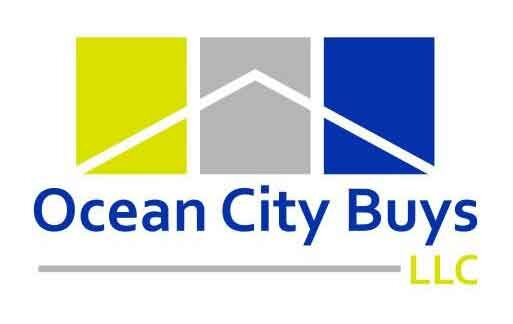As a homeowner, you may find yourself in the crosshairs of a house foreclosure in Maine despite decades of careful financial management. Circumstances beyond your control, like sickness, loss of employment, or untimely death, can cause you to default on mortgage payments.
When this occurs, you might feel at a loss of what to do. Trying to sort out can be daunting, with unsympathetic lenders turning a deaf ear to the hardships you suffered. It’s incredibly frustrating if no one attempts to resolve the situation to mutual satisfaction.
Even though homes are often bank-owned, lenders do offer grace periods before going through the foreclosure process. This grace period is short, and when that window closes, late fees are applied. Unfair, sure, but in many cases, perfectly legal.
Believing you have very little recourse causes deep states of depression for many Maine homeowners. Studies suggest that going into a Maine foreclosure can vastly affect homeowners’ mental and physical health.
According to researchers, more than a third of people who were in danger of foreclosing on their homes suffered from significant depression. The University of Pennsylvania study conducted indicated that the rate of depression among the forclosed was three times higher than the national average of 13%.
Whether you live in Bangor, Portland, Augusta, or Waterville, Maine, homeowners may find themselves battling both psychological and financial ruin when foreclosure looms.
Thankfully, for anyone who is facing a Maine foreclosure, there is help. By researching a few tips for avoiding foreclosure in your home, you may be able to protect it and your health.

The Foreclosure Process in Maine
Once the process begins, it snowballs into an unstoppable juggernaut. The key to upending a Maine foreclosure is to stop the process in its tracks. To do this, you need to understand how, when, and why bank-owned properties get foreclosed.
Missed Payments
Preforeclosure generally springs off the initial missed payment. After a small grace period window, the bank will apply late fees. Depending on the circumstances leading to the late payments, e.g., divorce, death, or illness, late fees may continue to accrue.
Breach Letters
When a situation of dire financial ruin occurs, there may be little homebuyers can do to nose up out of the problem. When this happens, Maine real estate lenders will send a breach letter. This letter states that the loan is in default and seeks resolution. If the homeowner fails to respond to an impending foreclosure, the lender will take things to the next step.
Preforeclosure Begins
After the loan becomes 120 days delinquent in Maine, the lender can send a letter to address non-payment. Under Maine law, you would have 35 days to “cure the default,” aka, address the delinquency. If you fail to do so, the next stage is a judicial or nonjudicial foreclosure. This applies to numerous areas of Maine, including but not limited to Aroostook, Biddeford, Auburn, Lewiston, Bangor, and Androscoggin.
Maine Foreclosure Laws
According to the laws governing a house foreclosure in Maine, the lender has to file a lawsuit. Once an official court judgment moves beyond the preforeclosure stage, you will have a small amount of time to answer a summons.
Although the home is bank-owned, you have the option to enter into mediation with the Maine real estate lender under Maine’s foreclosure diversion mediation program. The mediator is supposed to be impartial, so you still have a way to keep your foreclosure home.
Failure to answer is not an option. A judge can issue a default judgment on behalf of the bank and sell your home right out from under you. Should this occur, you will now have a foreclosure home to either leave or sell.
Maine real estate and mortgage rates are prime right now, so you may be able to come out a bit ahead even if you lose your home. Of course, it is better to avoid foreclosure altogether.
Tips for Avoiding Foreclosure on Your Home
The best way to avoid a foreclosure is to address the breach letter head-on. Other steps may include:
- Fixing your financial problems — Often easier said than done, investigating a second job option may help in this area.
- Liquidate assets — Look around the home or try and find family antiques that may be of high enough value to sell.
- Rent a room in your family home or consider placing a portion of the house on an AirBnB site. Areas in Scarborough, Kennebec, Westbrook, Windham, Old Town, and South Portland are sought-after areas that may invite retreat-oriented guests.
Loss mitigation is another strategy that Maine homeowners employ when facing foreclosure. This option can include forbearance, the negotiation of a repayment plan, or filing for bankruptcy.
Each of these solutions has pros and cons, so carefully research them to see which one works in your favor.
Sadly, your last option is to sell the home yourself. Should this unfortunate event occur, you can do things to make the process as quick and painless as possible.
One step in the right direction is to place your bank-owned home in a foreclosure listing. Such publications, both online and offer, provide foreclosure homes for sale. Real estate investors house hunt such advertisements on the lookout for foreclosure homes.
Selling Your House After Foreclosure Begins
You can sell your home before it forecloses via two avenues — a traditional or short sale. A conventional deal involves some legal haggling depending on if the foreclosure is judicial or nonjudicial. In either case, there may be something of a title issue that could hinder a lot of the process.
A short sale option is better in some ways as it allows the homeowner to sell quickly. When you short sale, you market the foreclosure home for less than it is valued, but the lender often promises to forgive the difference.
Selling Your House to a Cash Home Buyer
The process for selling your foreclosed residence to cash home buyers in Maine is nearly identical to selling a regular house. The primary difference is hammering out financial terms with the lender before selling it.
Foreclosed homes for sale may catch the enthusiastic eye of a homebuyer who seeks after bank-owned properties to renovate or flip. This makes selling your house to a cash buyer highly probable, but the important thing here is to find the best home buyer to avoid being low-balled.
A homebuyer who looks into purchasing bank-owned properties facing foreclosure often relies on hud property buyouts or real estate in dire need of being sold. These real estate hounds approach homeowners in the coveted areas of Bangor, Scarborough, Portland, Auburn, Penobscot when foreclosure is imminent.
The cash buyer should also be made aware of the fact that the home is a foreclosure. Try advertising your home on websites with Maine foreclosure listings to find someone willing to pay cash for the residence. A realtor could also assist you in selling your foreclosure home as well.
Consider a Short Sale
We briefly described what a short sale is but what it is exactly. A short sale is used in layman’s terms once a homeowner has fallen into default on their land and wants to avoid foreclosure. As such, short sales are seen as a viable alternative to foreclosure.
You will need to prove you are in financial distress before considering a short sale or a short sale moves forward. If they approve the short sale, you can place your house on a list of Maine foreclosed homes.
Applying for Forbearance
Mortgage forbearance after a home foreclosure in Maine can be of great benefit to underwater Maine homeowners. What forbearance does is provide a temporary stay on payment until your financial situation improves.
Applying for forbearance for your bank-owned home doesn’t decrease what homeowners owe; it simply extends the grace period allotted to get back on your feet and begin payments again.
After Covid hit, the government offered a kind of moratorium on foreclosures on federally backed mortgages. They also stopped evictions from apartments and rental properties. Protection is fast coming to an end.
This includes home foreclosure in Maine.
If applying for forbearance, Maine homeowners in places like Biddeford, Portland, Scarborough, or Aroostook with bank-owned properties can get assistance. Many homeowners do so via the bank lender or a government-sponsored site.
Restructuring Your Mortgage Loan
Restructuring your home loan is a popular option for many; however, it can result in higher interest rates and fees in the long run. The best way to avoid this is to map out a new plan with the lender that works best for you both.
Ask for a 90 day trial period to see if you can make the payments before a Maine foreclosure. A reduced interest rate will also help in this area, so be sure to hammer this detail out. Remember, the lender does not want to foreclosure, so it will be in their best interest to work with you.

Selling Your House Fast in Maine
The best way to avoid bankruptcy is to sell your house by yourself. While using a realtor is convenient, it can take a bit of processing time. There are companies that buy houses in Auburn and surrounding areas to help you move your foreclosed property quickly.
Companies like Ocean City Development will take the property off your hands as is and give you a cash offer on the spot. Selling your house fast in Maine is possible; find out more here: Sell my house fast in South Portland!

